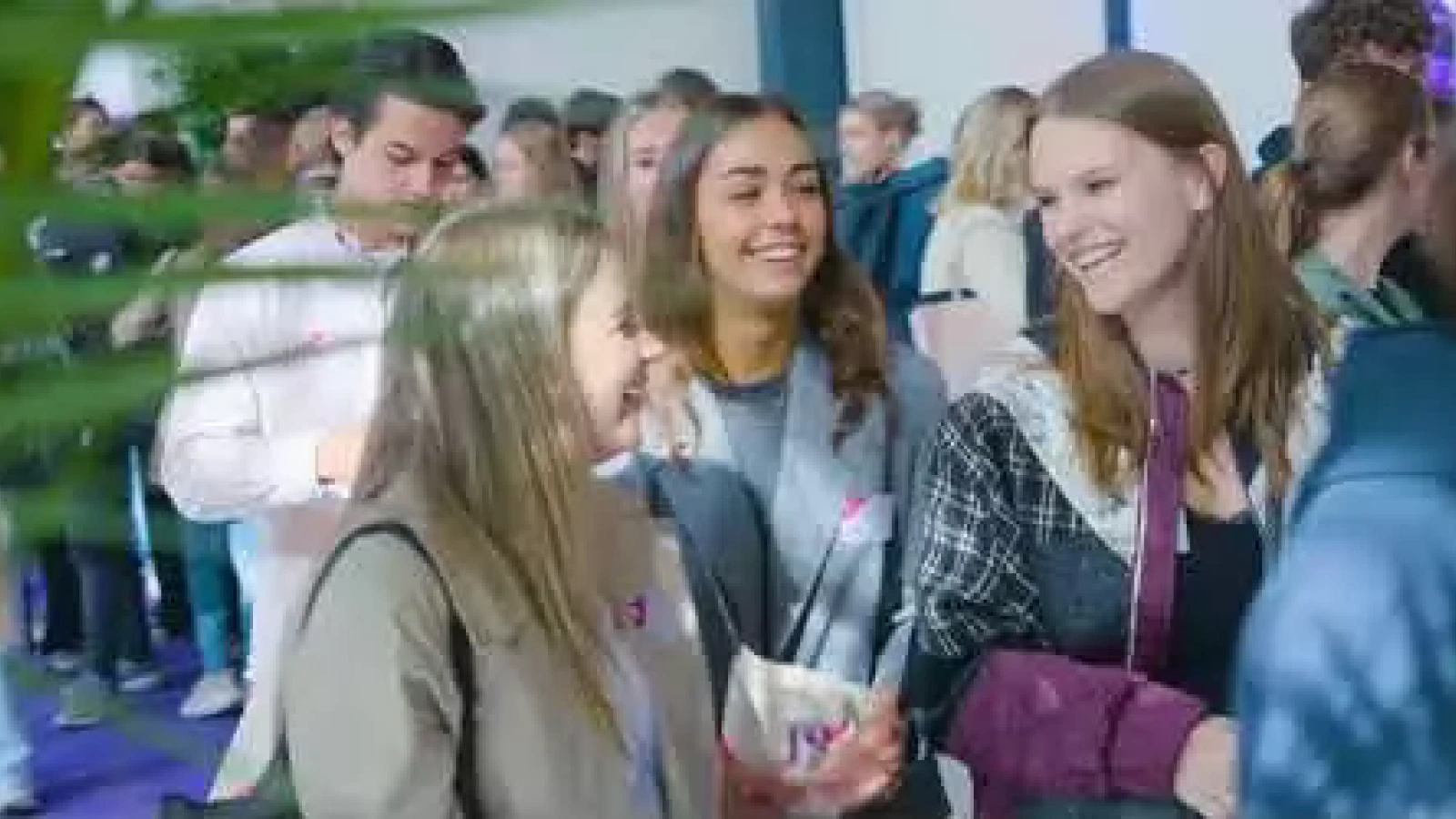
Working after your studies
Your options
The insights you gained from looking back at your study career will help you in your further orientation. In doing so, use your talents, interests, and motivation as a starting point for your choice. Most recent graduates first take some time off for holidays and/or travel and then start a job in paid employment or a traineeship, or they start/continue with their own company.
During your studies, you have gained a lot of skills and knowledge, which you will now put into practice. Perhaps you already have ideas about which organisation you would like to work for. If so, you can easily check the organisation's website to see if there are vacancies that match your field of study.
Unsolicited application
If there are no open vacancies at the organisation you would like to work for, you can often make an open application. You do this by sending your CV and a short motivation about why you want to work for that organisation and where your interests and talents lie. You may not always get an immediate response, but most organisations will save your CV in their system and think of you when a vacancy does open up.
Search for vacancies
If you do not yet know exactly where you would like to work, you will undoubtedly come across many job sites in your job search. You may not be able to see the wood for the trees. If you have created a LinkedIn profile, you can also see vacancies that match your profile there. You can also look for vacancies on Indeed or on websites of well-known employment agencies.
A traineeship is intended for job starters and trains trainees to become specialists in a particular field. You will often work in different departments within a company or even in different companies over an average period of 1 to 3 years. A traineeship consists of a combination of working and learning. When you start a traineeship, in most cases you will regularly attend training courses and study to work on certain competences.
A foot in the door
Many big companies offer traineeships. Starting a traineeship can be a good way to get your foot in the door at a company. So if you have an idea of which organisation you want to start working for, it is a good idea to check their website to see if they offer traineeships for job starters.
Perhaps you have already started doing business during your studies; or you have a business idea and dream of becoming an entrepreneur right after your studies. The Fontys Centre for Entrepreneurship supports and encourages (potential) student entrepreneurs where necessary in the field of entrepreneurship. Take a look at what the Centre for Entrepreneurship can do for you. Did you also know that, as a student entrepreneur, you can make use of the Fontys Student Entrepreneur Program?
Centre for Entrepreneurship The Fontys Student Entrepreneur ProgramAre you studying at Fontys and can you use some guidance in finding a job that suits you and your talents? You are not the only one; many recent graduates find this difficult. Firstly think about why you are stuck. Have you not quite figured out what exactly you are good at? Which skills from your studies are important for a job? Or you have not figured out yet what exactly your wishes and dreams are and how to get where you want to be? Then the Fontys study career choice advisors may be able to help.
Schedule an appointment with a study career choice advisorDo you know what you want but are you reluctant to present yourself at a company? Do you not know which organisations there are in your field? Your study programme can often help you with this, with things such as job interview training or establishing contacts with organisations in your field of interest. Ask your student coach for help.
Career Jumpstart
Do you have an extra support need (e.g. autism, ADHD, (fear of failure), dyslexia, and/or physical and/or psychological complaints) and does this make it difficult to find a suitable job? Career Jumpstart can help you find the job that suits you. After an intake interview, you establish together what your guidance route should best look like.
More about Career JumpstartTip: Attend a Career Event
At your study programme, teachers know a lot about the work field you go into after graduation. Attending a career event is a good way to talk to different companies and see what suits you. Who knows, you might even get your foot in the door at a great company this way!
Enquire about the possibilities with your student coach.

Career Event 2023
Fontys Economie en CommunicatieApplication tips for your dream job
Maybe you already have some experience applying for jobs because of a job next to your studies or other work experience. Still, it can be quite exciting to apply for your first job after graduation. With these tips, you will eventually find the job that suits you well!
Pro tip: call the employer to ask a well-thought question. This way, your name sounds familiar when the recruiter sees your application.
In the end, every interview and every rejection brings you one step closer to your job. Try to see it as an opportunity to discover for yourself what you do and don't want.
Practical information
If you are eligible and are receiving Dutch government (DUO) student funding, you have to stop it when you graduate.
Once you have completed your studies at Fontys, you must also deregister.
More about deregistering after graduation